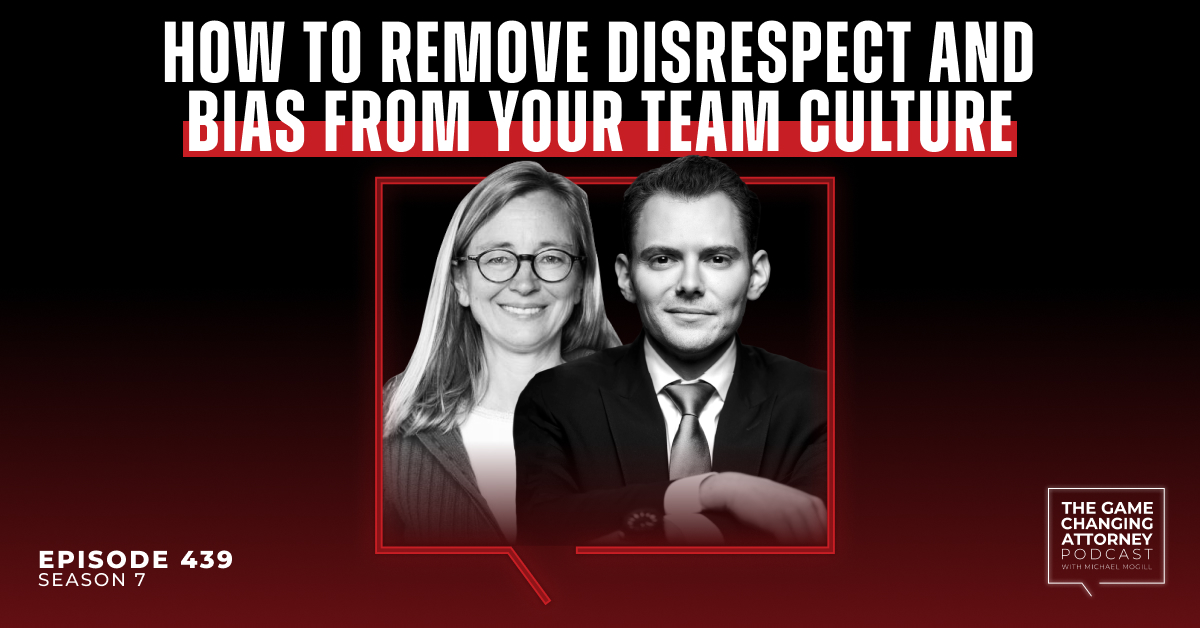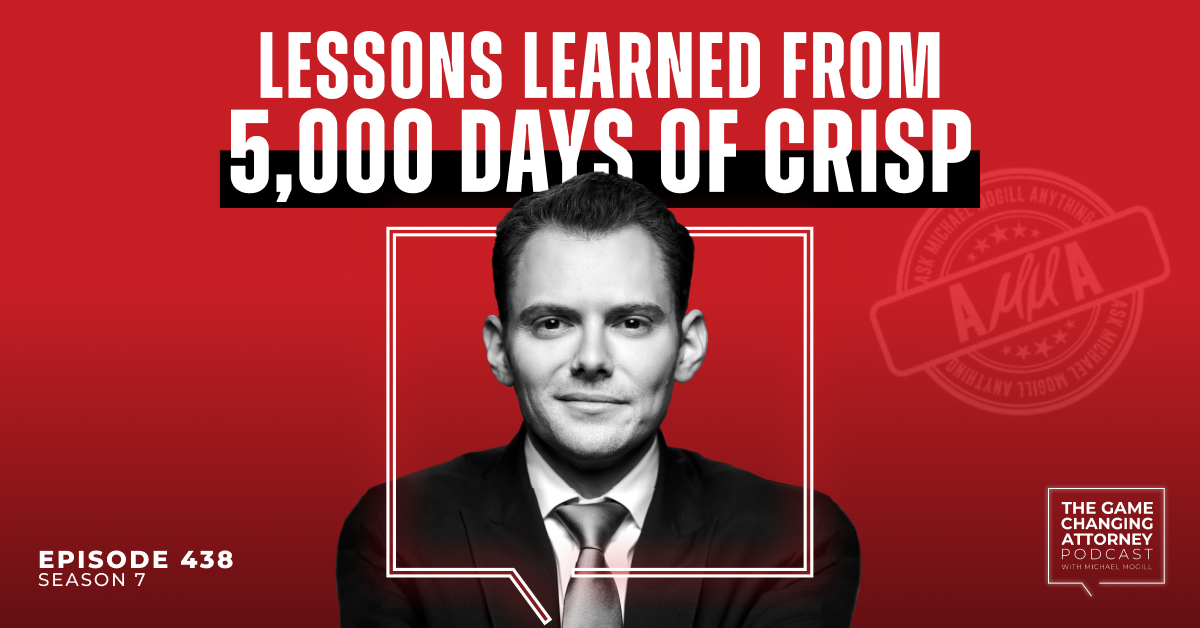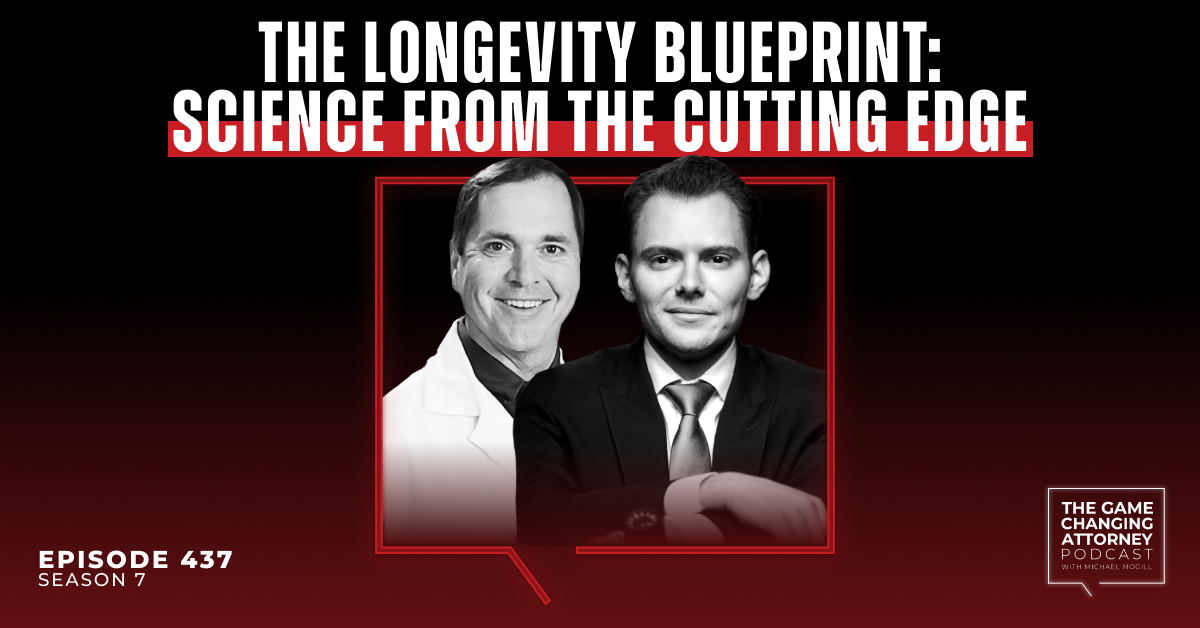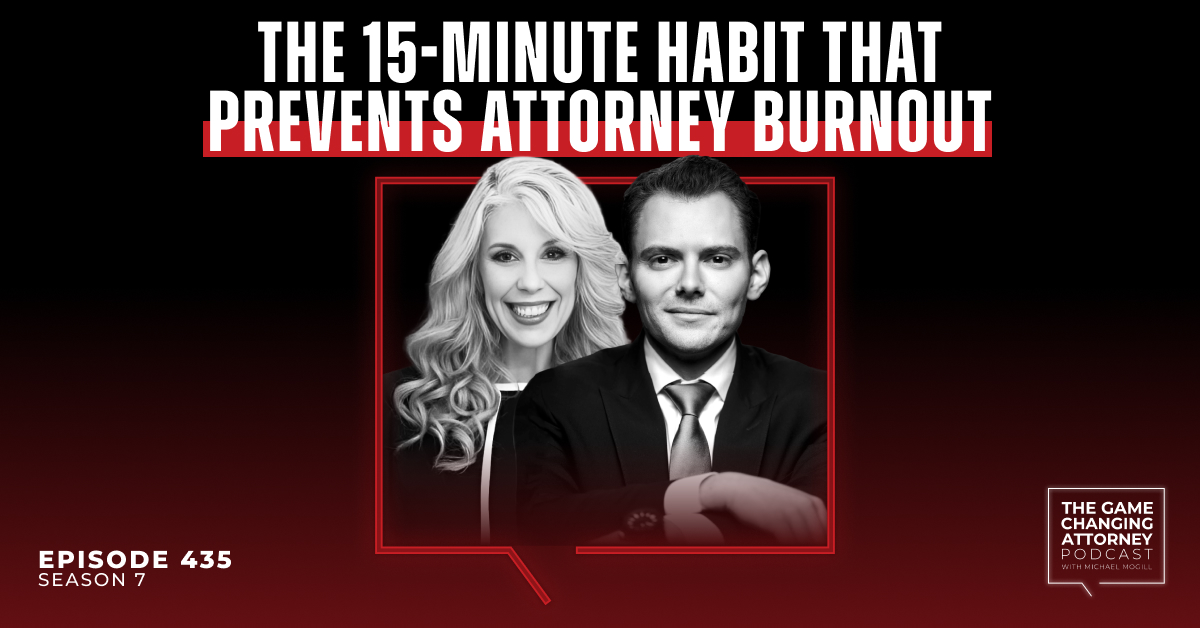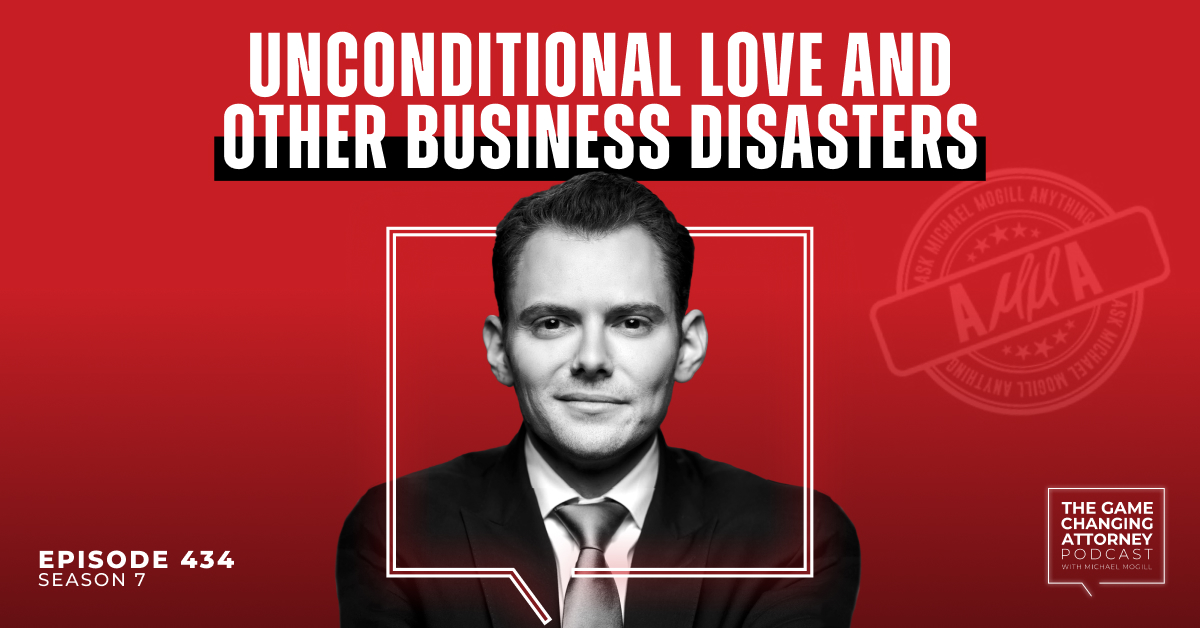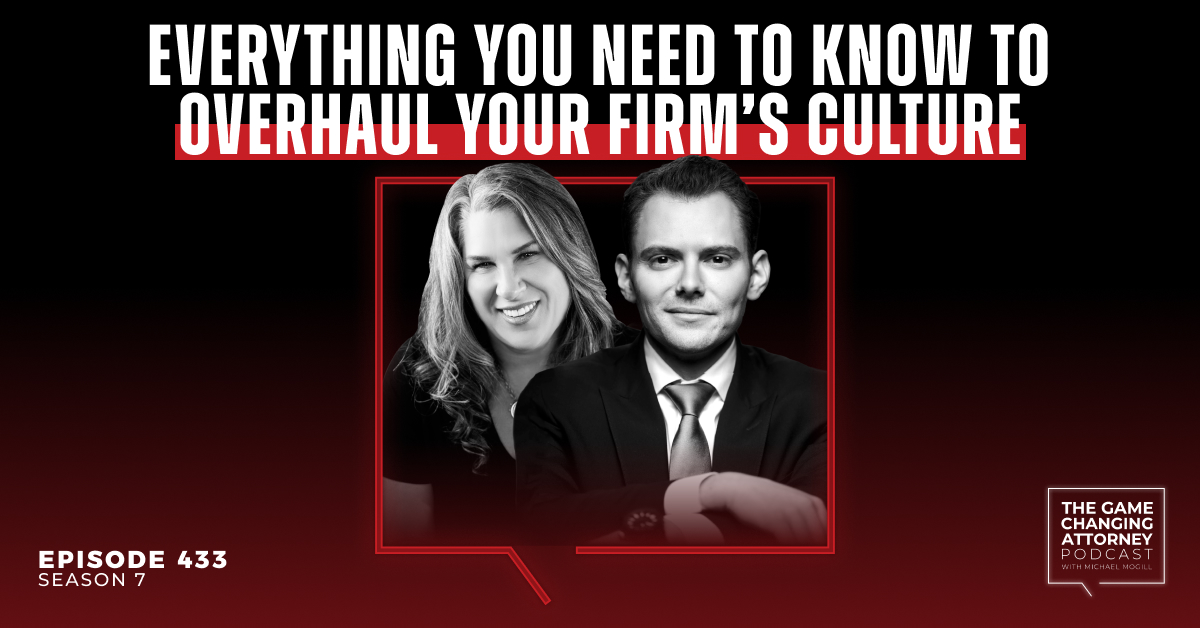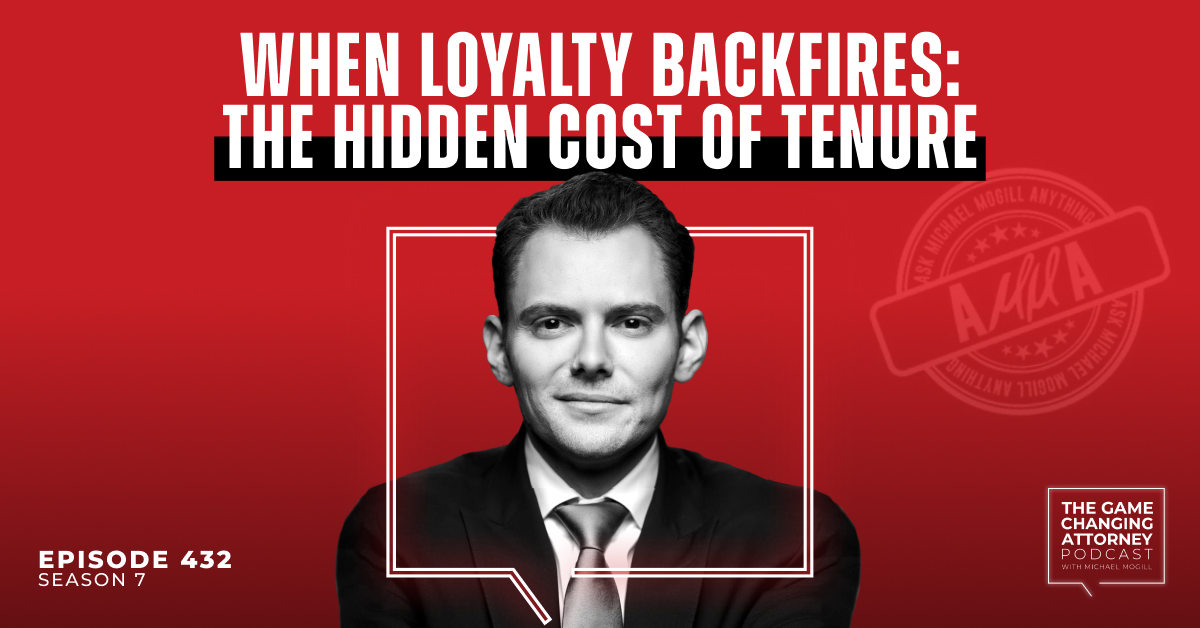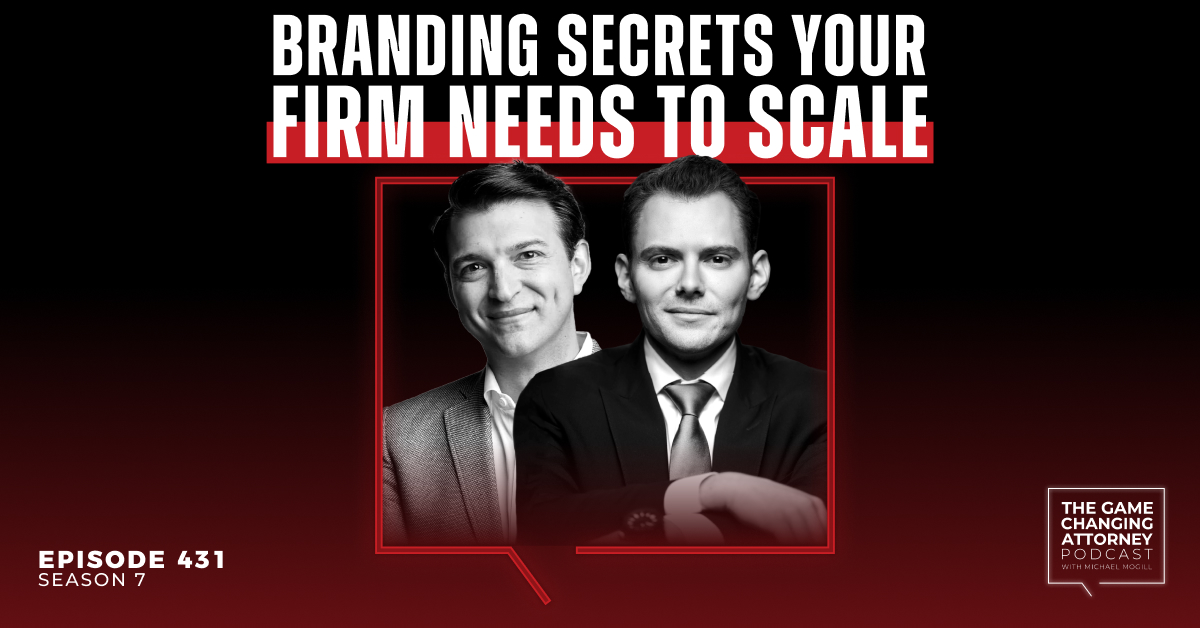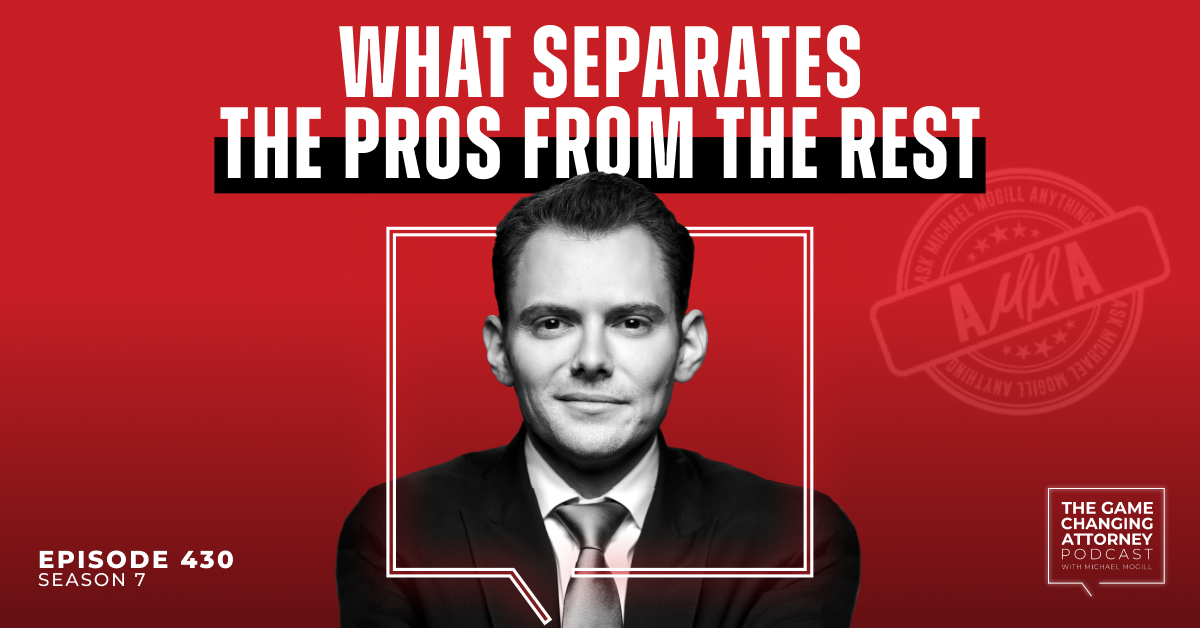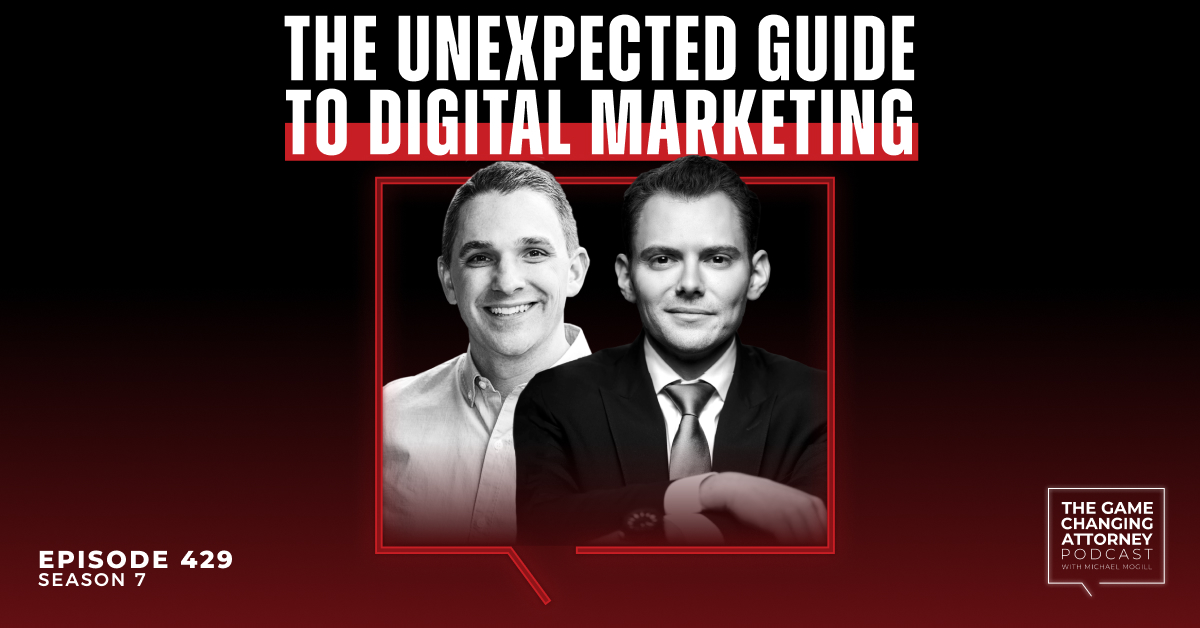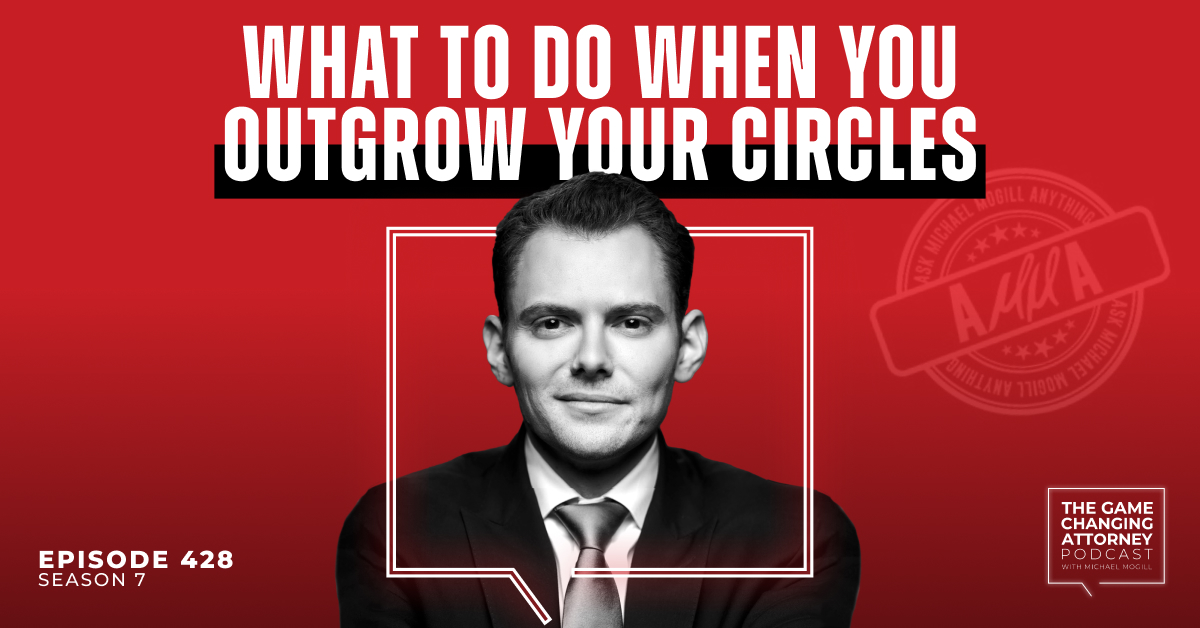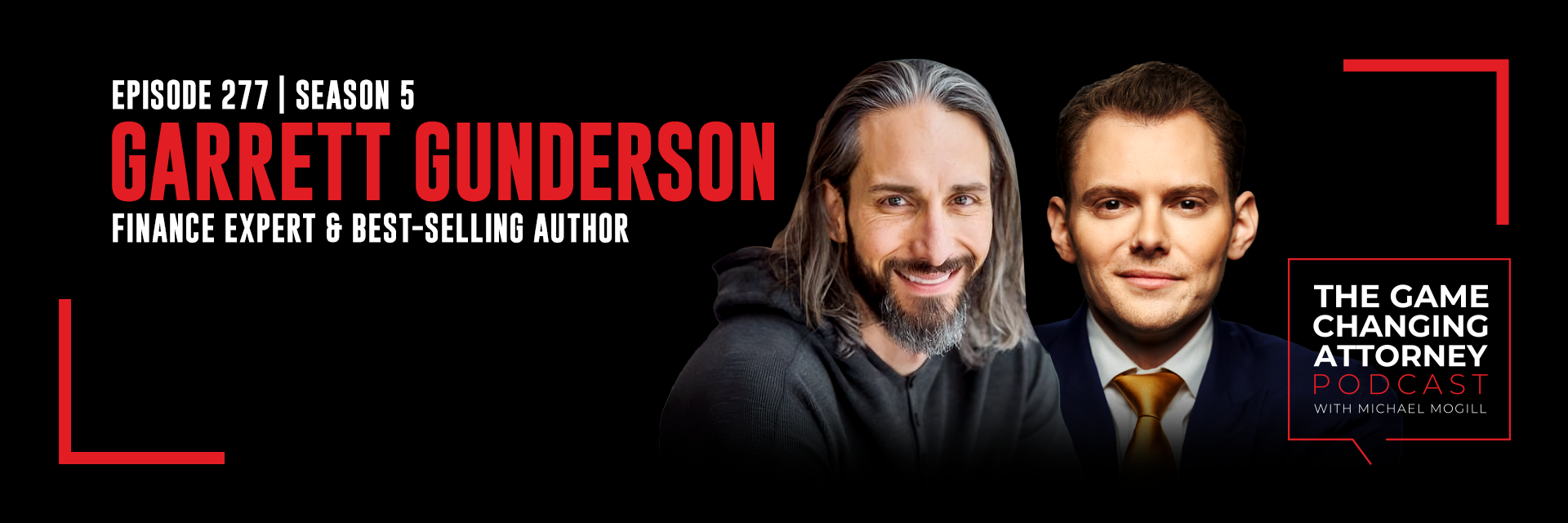
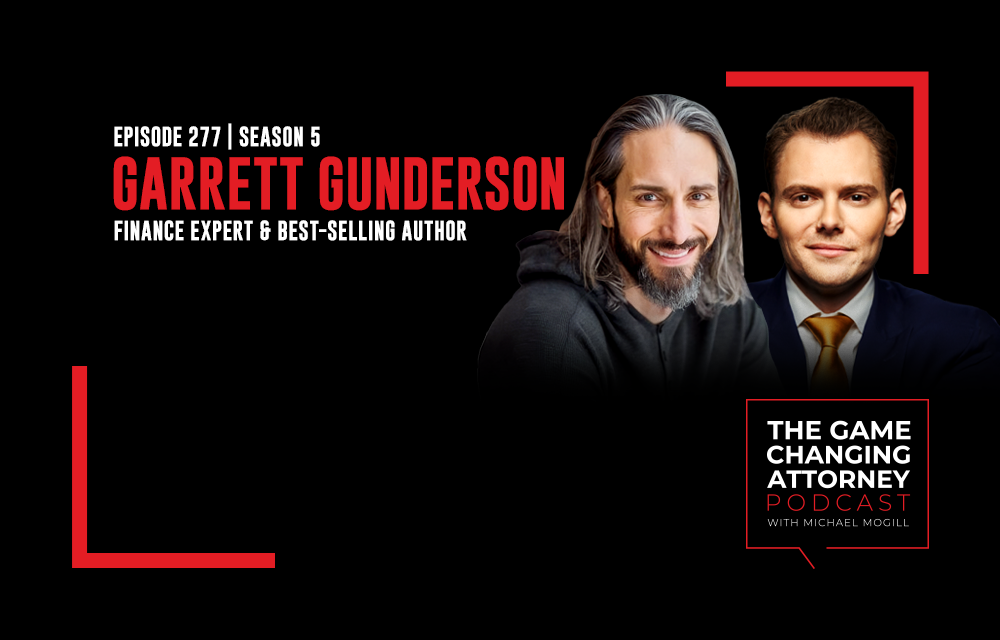
Episode 277 — Garrett Gunderson — Transform Your Financial Future: Proven Methods for Building Lasting Wealth
What if your financial future could be radically transformed with time-tested strategies that the ultra-wealthy have used for generations?
Garrett Gunderson has cracked the code.
By blending holistic financial strategy with clear legacy guidelines, he’s revolutionized how we think about wealth management and preservation. From dissecting the pitfalls that decimate fortunes to revealing the secrets behind the Rockefeller method, Garrett’s insights are game changing.
It’s a proven formula for sustainable wealth and legacy — and it’s within your reach.
In this episode of The Game Changing Attorney Podcast, Garrett joins Michael Mogill and shares:
- How you can build, protect, and transfer wealth across generations
- The myths perpetuated by mainstream financial advice
- Actionable steps to master your financial destiny
Don’t leave your financial future to chance. Tune in and discover how to turn your business success into lasting personal wealth and a legacy that endures.
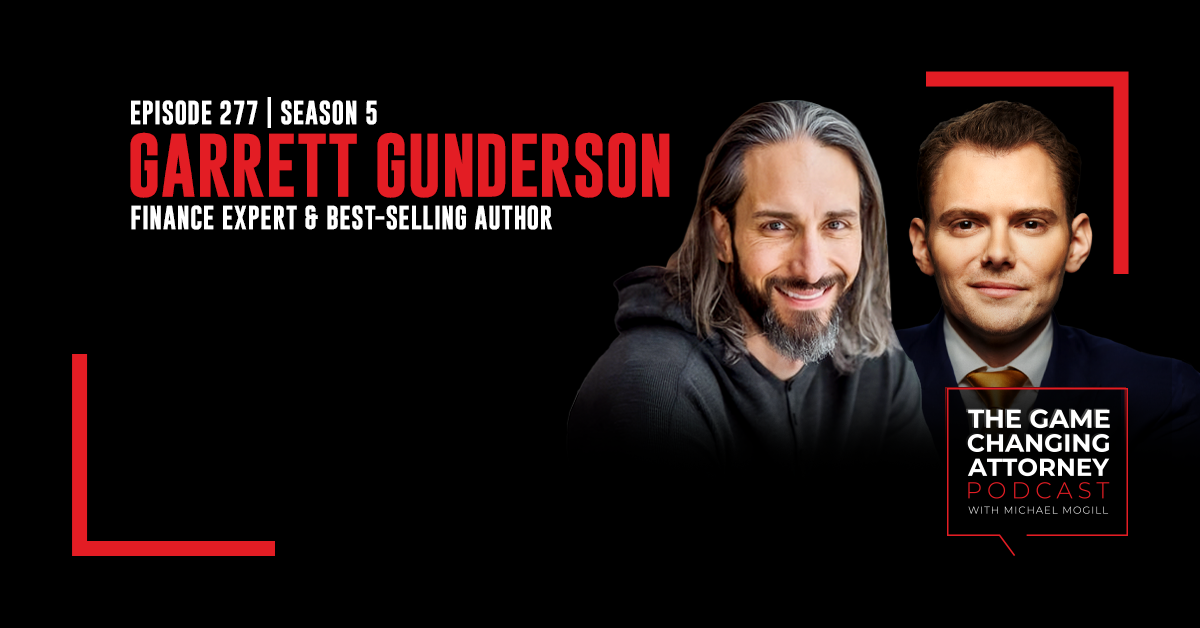
Listen & Subscribe
Show Notes:
Rockefellers vs. Vanderbilts. “When it comes to the title of the book — What Would the Rockefellers Do? — it’s really about asking what would the wealthy do? What would billionaires do? I took the story of the Vanderbilts, who had more money than the US Treasury at one time. That’s an insane amount of money. After Cornelius died, his oldest son doubled their estate in nine years, but then he died. Fifty-four years later, the first Vanderbilt died broke, and at the last family reunion, there wasn’t a single millionaire there. Even though Gloria Vanderbilt was a multimillionaire, her son, Anderson Cooper, didn’t receive any money from her. He had to fake press credentials just to become a journalist because he didn’t have any financial wherewithal. Then you look at the Rockefellers, whose fortunes are moving with generational wealth six generations later. We know the saying “shirt sleeves to shirt sleeves” or “rice paddy to rice paddy” — in three generations, wealth is typically decimated and gone, often creating entitled, spoiled trust fund babies. What did they do differently? What is it that anyone could do that they were doing? It’s hard to build an oil empire. It’s easy to take some of these core philosophies and tenets and pass them on from generation to generation.”
Master the basics. “I think that 80 percent of what we believe we need to know about finance, we don’t actually need to know. There are the fundamentals and the basics. Once we understand our money persona, which are the hidden factors that determine our success or sabotage when it comes to money, we can operate more effectively. If we automate our savings, get deliberate with our investing, and plug our financial leaks, we can keep more of what we make. People typically overpay taxes or interest, have hidden fees or commissions with investments, or don’t structure their insurances properly, resulting in 10 percent or more of their income being lost. Reinvesting in ourselves is crucial, especially for business owners. Investing in your people is essential. Your processes should be dialed in, and a certain amount of automation should make people feel more connected. When we invest in ourselves, our skill sets, and our ability to add value — everything from communication to marketing and expertise — we will accumulate more wealth. The formula is simple: focus first, invest in ourselves, discover our investor DNA to become better investors, automate our savings, and when we have enough liquidity, deliberately invest in things aligned with who we are. It’s not more complicated than that. We just think it is because there’s billions of dollars at stake.”
Your investor DNA. “I believe there are three primary areas for investing: 1) Real estate. It’s not for everyone. Some people get in over their heads because it’s not part of their investor DNA. For example, you own an office here because you’re serving clients in it. 2) Businesses. Acquiring or building businesses is crucial. These are often overlooked because people tend to invest in Wall Street or funds, trusting others before themselves. 3) Intellectual property. This is the game changer. It’s highly scalable and doesn’t have property taxes like real estate. We can live almost anywhere if we build it properly. Once you focus on these three areas, you can explore other investment opportunities. To discover our investor DNA, we need to examine where we have natural abilities, what we pay attention to, and what we read about. Some people have a knack for real estate, particularly apartment complexes, and they see deal flow all the time. Others dislike spreadsheets or talking to bankers, so real estate isn’t suitable for them. Investor DNA involves looking at our investment history: what worked, what didn’t, and why. We also need to learn to say no and discern opportunities from distractions. Every investment may seem like an opportunity, but often it’s just a distraction that derails us from our core competencies.”
The budgeting trap. “I believe in mindful cash management over budgeting. Budgeting is part of the problem. It’s like the word diet — the first three letters spell “die.” People always on a diet seem to be on a yo-yo path rather than adopting a lifestyle change. Mindful cash management acknowledges four types of expenses. First, automatically save money off the top. Set up a sweep account, a separate account at your bank, and every time you make a payment to your personal account, a percentage automatically goes into this account. By automatically sweeping this money, it builds liquidity and resolves many issues. Rather than budgeting, pay yourself first and review your finances weekly or bi-weekly to check for destructive expenses. Manage your lifestyle expenses after paying yourself and avoid overspending. Consider where you could allocate more money to be more productive — could you hire someone, develop a new skill set, or join a beneficial program? Most people in a budgetary mindset eliminate the very things that set them free: mentors, coaches, processes, and quality hires. I’ve seen too many business owners hire cheaply rather than hire the best. IBM found that the best people are 5 to 200 percent more productive than the second best. Even if they cost 50 percent more, you’re still netting a significant return. It’s a mindset of producing more than you consume. You can’t shrink your way to wealth. Ultimately, we’re in a game of value creation. If you play the game of value creation, you’ll be wealthy. If you play the game of shrinking, you’ll be poor, living like a pauper — and that’s not fun.”
What does being a game changer mean to you? “You find your voice and you share it with the world. You improve your life and you let other people know. You live abundantly and give value freely, because as soon as you do, more and more people build a connection and relationship with you and they see you as an integral piece of their life. If you hold back or hide or think it’s going to be stolen or don’t want to do it, you lose. People that hold on to their ideas rather than share them lose. The ones that share them most freely and make the value and the connections — they win.”
- Garrett Gunderson
- What Would the Rockefellers Do? by Garrett Gunderson (free audiobook)
- What Would the Rockefellers Do? by Garrett Gunderson (free PDF book)
- Killing Sacred Cows by Garrett Gunderson (book)
- Money Unmasked by Garrett Gunderson (book)
- Mastering The Rockefeller Habits by Vern Harnish (book)
- Whole Life Insurance
- Parkinson’s Law
- The FIRE Movement
Connect with Michael
- Text directly at 404-531-7691
